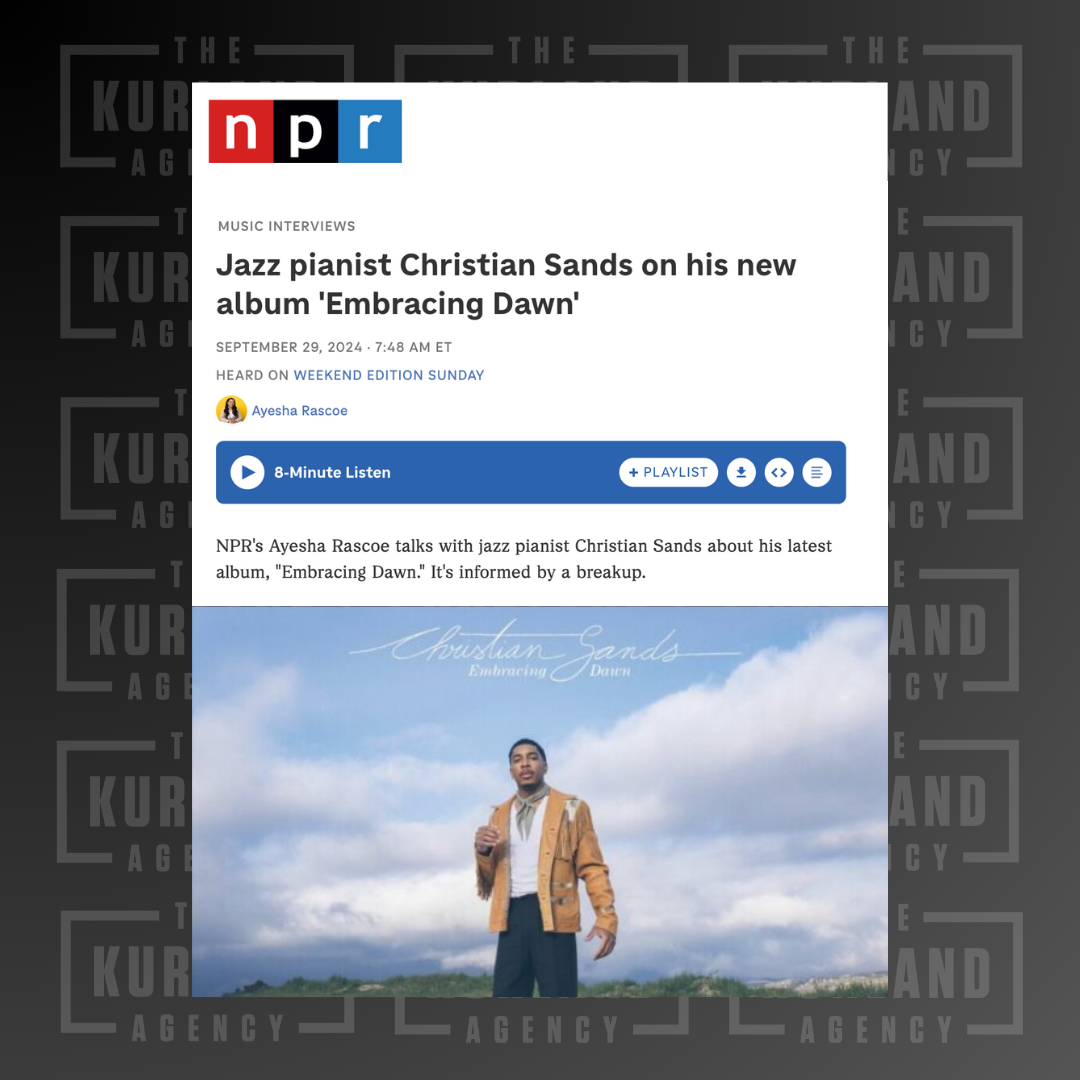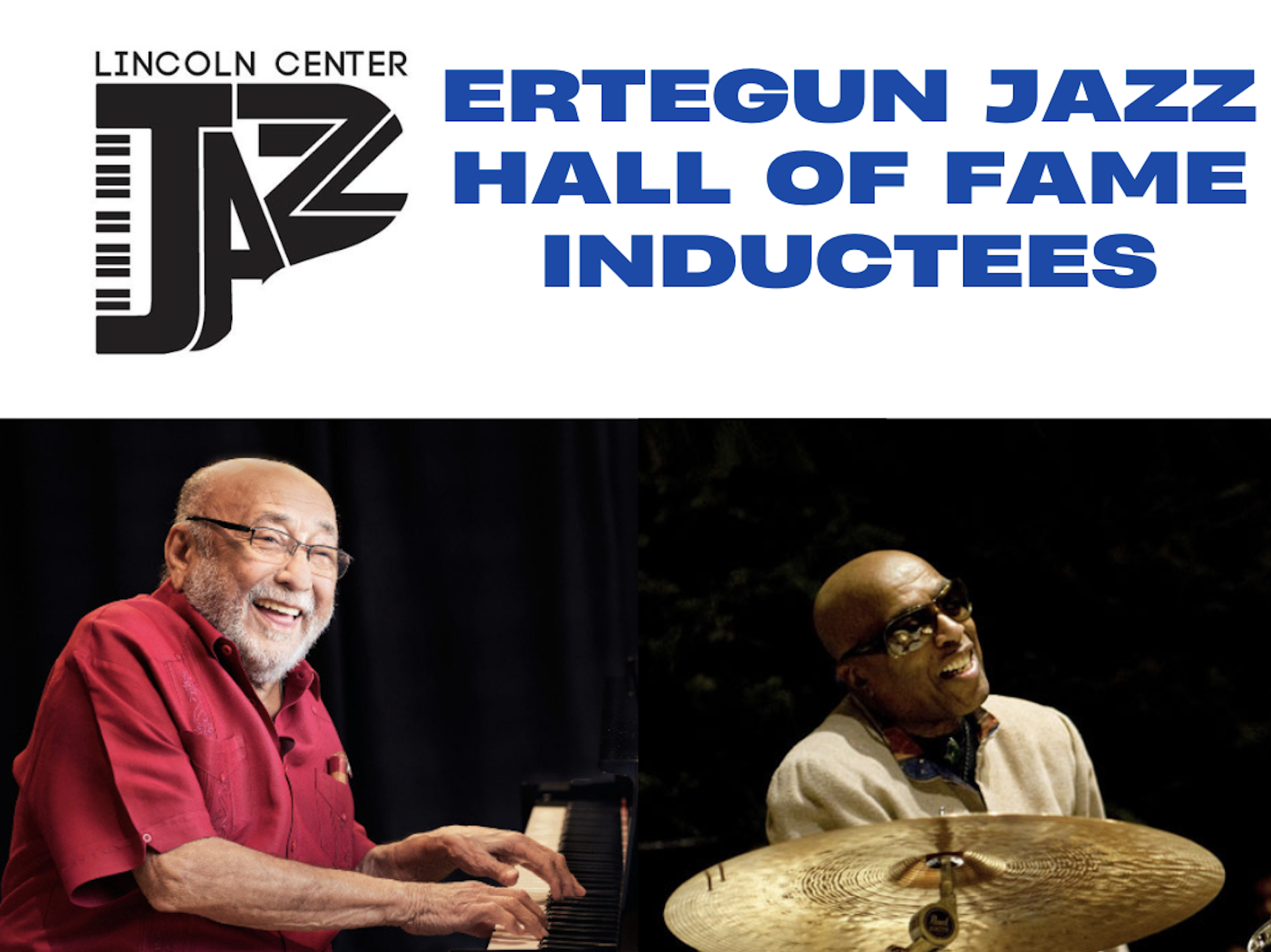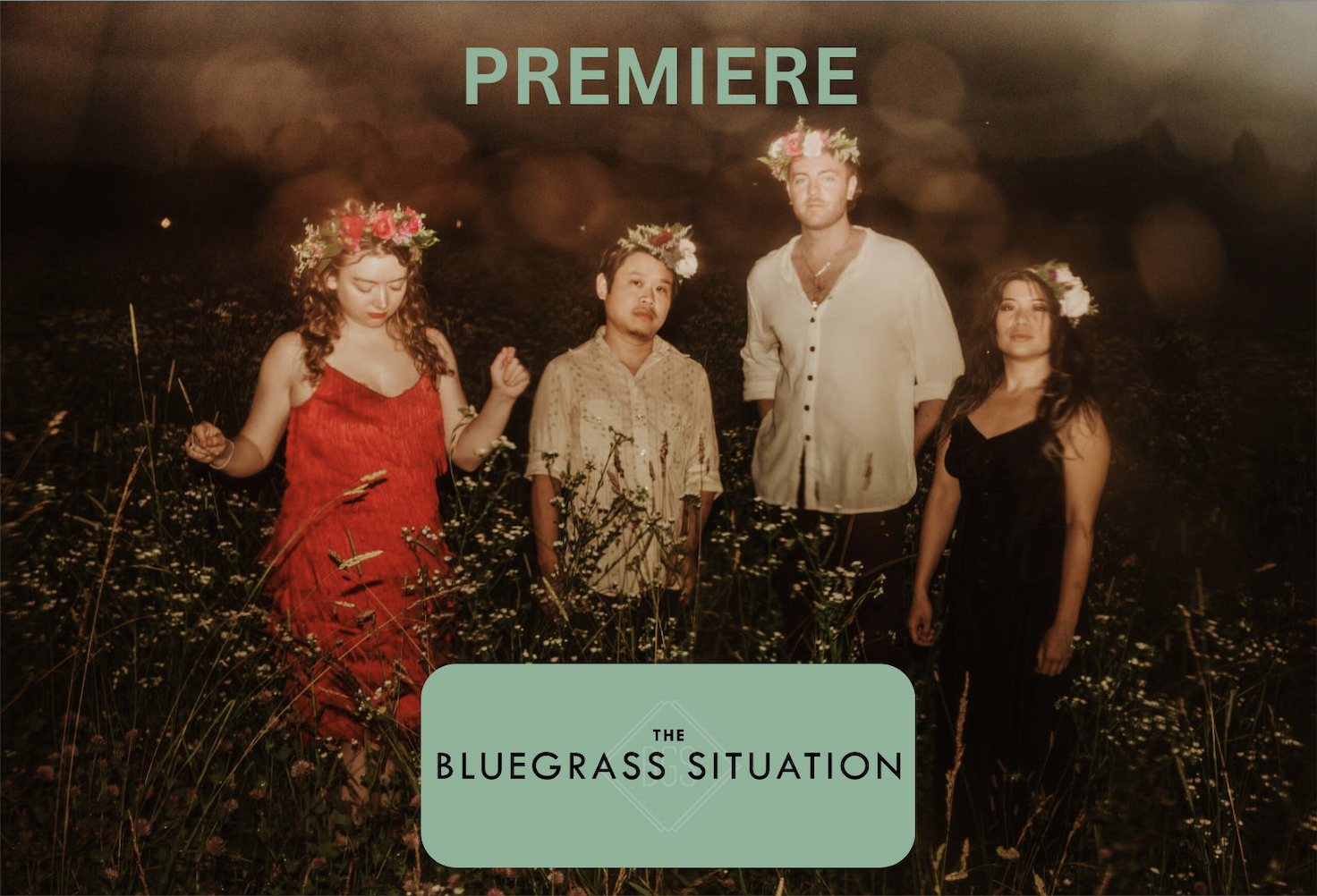
via NPR
NPR’s Ayesha Rascoe talks with jazz pianist Christian Sands about his latest album, “Embracing Dawn.” It’s informed by a breakup.
AYESHA RASCOE, HOST:
Christian Sands has been a public figure in the jazz world since his first album in 2002 when he was 12. And with his latest release, the pianist is going deep.
(SOUNDBITE OF CHRISTIAN SANDS’ “GOOD MORNING HEARTACHE”)
RASCOE: On “Embracing Dawn,” from his first track to his last, Sands is exploring loss – in his specific case, the end of a relationship.
CHRISTIAN SANDS: I wasn’t actually trying to create this record on purpose. You know, I was going through the first real type of heartbreak that I’ve ever had in my life. And so I was trying to figure out ways to cope with it.
(SOUNDBITE OF CHRISTIAN SANDS’ “GOOD MORNING HEARTACHE”)
SANDS: As I was writing this music, the more that I did it, the more I found myself going through the journey of coping and the journey of going through putting yourself back together. And then I also realized that I wasn’t the only person that was going through this. I thought about making a space for people that do go through this. Not even just for relationships, but I mean, it could be a loss of a job. It can be the loss of a loved one. It can be, you know, any situation where there is a major transition in your life.
(SOUNDBITE OF CHRISTIAN SANDS’ “GOOD MORNING HEARTACHE”)
RASCOE: Well, it seems like you do go through this kind of evolution, ’cause you go through the track list. You start with “Good Morning Heartache,” but then you end with the title track, “Embracing Dawn.” But…
SANDS: Yeah.
RASCOE: …Tell me about this specific song, “Thought Bubbles I (Can We Talk?)” You know, I think a lot of people have seen those little thought bubbles in the text messages. And, you know, trying to see…
SANDS: Yeah.
RASCOE: …What are they going to say? Or then sometimes it just disappears, and you’re like, oh, they’re not going to say anything.
SANDS: Yeah. Exactly. It is literally that exact moment. You haven’t spoken in a while, and the text bubbles start coming in.
(SOUNDBITE OF CHRISTIAN SANDS’ “THOUGHT BUBBLES I (CAN WE TALK?)”
SANDS: You don’t know if it’s going to be a good conversation or a bad conversation. You know, you have those moments where the thought bubbles – they go away.
RASCOE: Yeah.
SANDS: Or they come back. You know, the communication through the texting starts out hopeful. But then it might take a turn. You know, then it might escalate into something. And then now there’s – it’s anxiety. Now there’s all these different emotions, and then all you really want is just peace.
(SOUNDBITE OF CHRISTIAN SANDS’ “THOUGHT BUBBLES I (CAN WE TALK?)”
SANDS: There’s tension here.
RASCOE: And that’s why it’s so kind of tentative, and the way it kind of – it feels like it’s almost starting and stopping, is to capture that that feeling.
SANDS: Yes. Exactly.
(SOUNDBITE OF CHRISTIAN SANDS’ “THOUGHT BUBBLES I (CAN WE TALK?)”
RASCOE: You’ve been mentored by greats like Billy Taylor and Christian McBride, who were also these great ambassadors for jazz.
SANDS: Yeah.
RASCOE: So, what did you learn from them?
SANDS: The biggest lessons I’ve learned from all of them was to be honest in your music.
RASCOE: What does that mean?
SANDS: What it means is truthfully, who you are off stage is who you are on stage. You know, it’s an extension of you. With Dr. Billy Taylor, what he always stressed was always bring your audience with you. Always bring your audience on a journey. And I would actually watch him literally speak about what’s going to happen in the song. OK, the first eight bars is going to be this. The second is going to be this. And then he’d give an example, so the audience will understand what’s going to be played.
(SOUNDBITE OF ARCHIVED RECORDING)
BILLY TAYLOR: So, now, what I would like to have you focus on and really listen is to how our drummer Winard Harper varies that melody.
SANDS: Now, I don’t necessarily think you have to do all of that. But he was a big educator. That is who he was. So, for me, all of my music is who I am, where I’m coming from, the stories I’ve heard, the story of my own people. I’m talking about, you know, the African American community. I’m talking about people from New England. I’m talking about – you know, there’s so many different versions of it, right? And this album is not just my experience, but the human experience of going through heartbreak in whatever form that might be.
(SOUNDBITE OF CHRISTIAN SANDS’ “BRAISES DE REQUIEM I (THE EMBERS REQUIEM, MOV. I)”)
RASCOE: There’s another song on the album, “Embers Requiem, Mov. I.”
(SOUNDBITE OF CHRISTIAN SANDS’ “BRAISES DE REQUIEM I (THE EMBERS REQUIEM, MOV. I)”)
RASCOE: That’s really beautiful.
SANDS: Thank you.
RASCOE: And what did you or how did you approach composing this piece?
SANDS: So it’s a couple of different aspects of it. I actually was in that relationship that I was in, I actually started to write, and I had a very different feeling when I first started writing it. So what you actually hear is the beginning of the piece that had a certain color to it, and that it really morphs as the piece goes along. And you’re actually kind of listening to my emotions.
(SOUNDBITE OF CHRISTIAN SANDS’ “BRAISES DE REQUIEM I (THE EMBERS REQUIEM, MOV. I)”)
SANDS: So the song really symbolizes the closing of the chapter – you know, “Embers Requiem.” I love classical music. And whenever you hear an artist, you know, talk about requiem, it’s usually a death, right? It’s usually the end of something. I’m a romantic, so I’m thinking about the fires of love. And it’s with embers, it’s not exactly the fire is gone, but it’s the small little red marks, the embers of the passion that was there. And now it’s slowly dissipating. Now it’s slowly going away, you know, but it’s also signifying peace that is coming. You know, and it’s really about the act of letting go.
(SOUNDBITE OF CHRISTIAN SANDS’ “MMC”)
RASCOE: Has the person who you had to break up with – have they heard this album?
SANDS: (Laughter) They have not.
RASCOE: They have not. They haven’t heard the album.
SANDS: Well, they might have. I mean, they might have heard the singles that have come out.
RASCOE: So you don’t know.
SANDS: I have no idea.
RASCOE: Yeah, OK.
SANDS: (Laughter).
RASCOE: Having written and recorded these pieces, do you look at this as not really so much of a breakup album, but really more of a healing album?
SANDS: Exactly. It’s really a triumph album. It’s really about accepting of oneself. It’s about not knowing what’s going to come next, but you’re prepared, and you’re ready and you’re excited. So, you know, it’s really the process of overcoming and the process of finally getting to a place where you’re like, you know what? I made the changes that I had to, and now I am ready to move forward in my life. And the world is your oyster after that, as they say.
RASCOE: That’s jazz pianist Christian Sands. His new album is “Embracing Dawn.” Thank you so much for talking with us.
SANDS: Thank you for having me.
Read Full Article on NPR
Christian Sands on TKA


